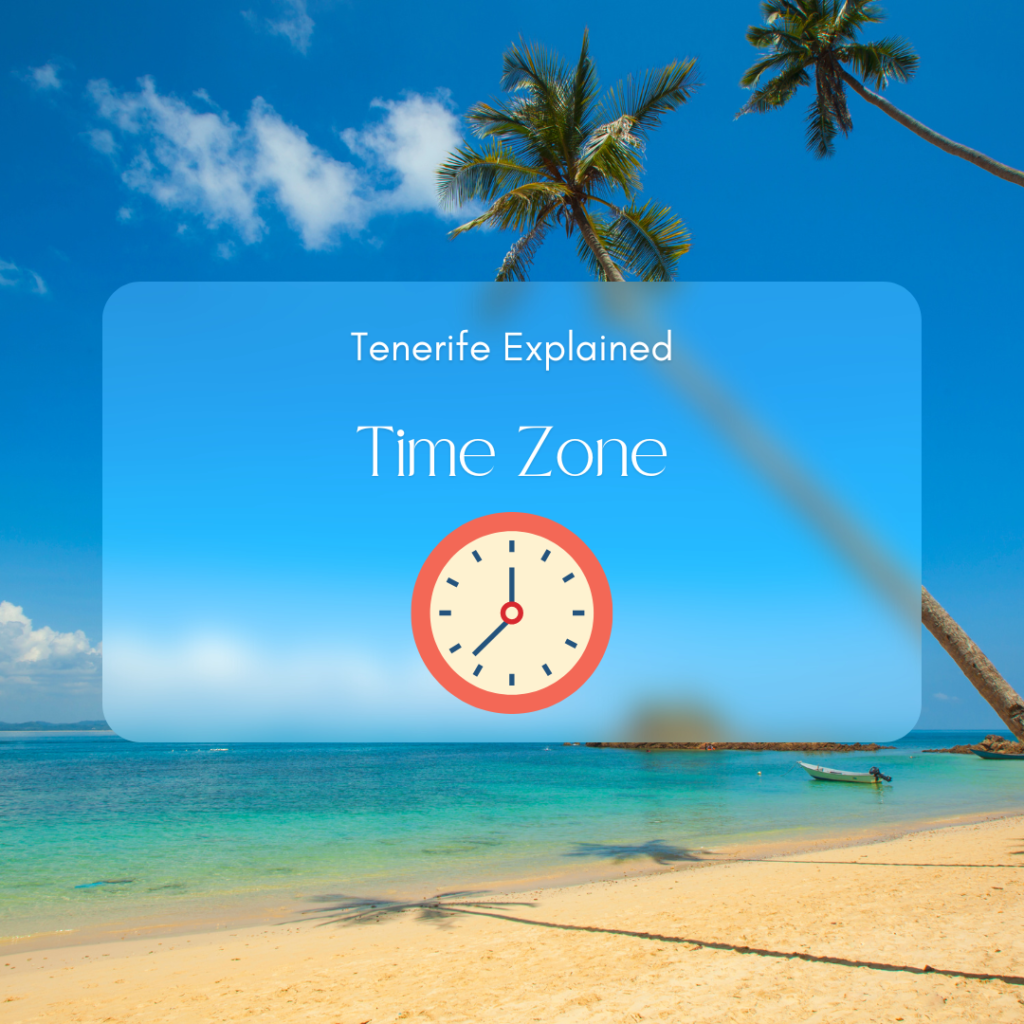
If you’re coming to Tenerife, you already know that there are multiple things you should know. First, you need to decide where and how you will be spending your holidays, then choose a place to stay in after looking through our accommodation options, and then continue planning your holiday. As you’re planning the holiday though, it is possible that multiple thoughts are running through your mind – some of them may have to do with the climate on the island, some of them may have to do with the area you will be staying in (you may wonder are there certain objects around, is it easy to commute back and forth, and such), some of them may have to do with payments and other things, but what we’re also certain of is that before or after arriving, you will be wondering what timezone are you in. After all, Tenerife is very close to the US, so it makes sense to think that Tenerife’s timezone would be the same or at least close to that of the United States, but that’s not necessarily true.
Time Zone in Tenerife
The time zone in Tenerife is not too far off from most European nations – as Tenerife is part of Spain, the time zone on all of the islands is also very similar. Tenerife functions on a GMT+1 timezone.
Contrary to what some might say, the time zone in Tenerife provides the island with quite a big advantage – as most of its tourists are from the EU and some from the UK, they’re not jetlagged too much and can start spending their day as they wish straight after arriving on the island. Not too shabby!
Other Things
Other things you should know is that Tenerife is part of the EU which means that visitors from outside the Union can only stay here for up to 90 days, and that the main language on the island, is, of course, Spanish – there are people that speak other languages such as English, German, or Dutch, but most of the people that are located on the island speak Spanish, so if you don’t speak the language, chances are that you’re going to run into some sort of problems so we advise you to brush up on Spanish skills at least a little before coming here.
Another thing you should know is that the island in and of itself contrary to a popular belief isn’t full of tourists and tourists only make up a small part of the people living in there. There are certain areas that are full of tourists such as Costa Adeje, Los Cristianos, El Medano and others, but the areas closer to the capital are less populated: if you’re searching for a room, we advise you to begin your search in advance because there’s a lot of people that go into the island and out of it at quick intervals.
Another thing to note is that if you’re staying on the island for a longer period of time, you’re probably going to need some sort of documentation made sooner or later. Documentation may include, but is not limited to the NIE number identifying a foreigner living in Spain, residence permits or the status of a resident, or similar things. If you’re after purchasing cars or even a property, we advise you to contact us and we’ll find a suitable solution just for you.
Also, don’t forget to follow us on YouTube and TikTok as we always have videos about Tenerife posted there and there you will be easily able to keep updated on our activities.
Now, check our accommodation options and select which option works for you, and until next time!
